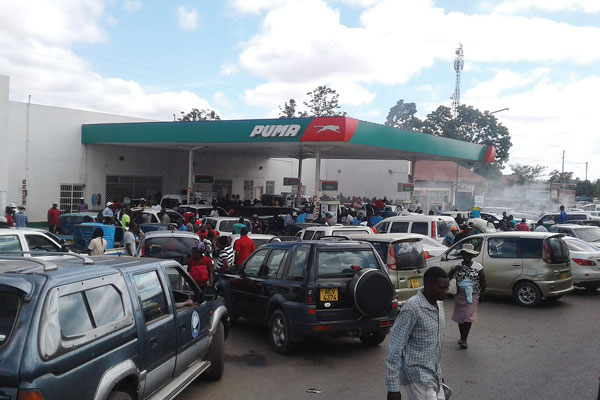
It’s official, the exchange rate for American dollars to our ‘surrogate currency’ is not 1:1, neither is it 1:2.
All the other parameters have been logically adjusted in the economic circles to tally the 1:3.4 “black” market rate; “black” cum-white.
This is why the government gave a nod to schools to increase fees though blocking them from charging the very fees in United States dollars.
The choice is not ours, Zimbabwe isn’t producing anything and the country is importing almost anything including baby diapers and adult toilet tissue paper.
A system that forces pricing models not to recognise the movement in terms of value of the local currency against the currency used for foreign payments is itself an economic saboteur, an anti-development vandal.
Everything we are using, from matches, candles to light bulbs, someone paid “good” money, the “good” money that was chased away by our bad money.
What is surely originating from within our horizons is the sun that we see rising from the east and settling around 7pm behind our mountains.
The economic, scientific or even spiritual explanation of how we got where we are now is not important at the moment.
- Chamisa under fire over US$120K donation
- Mavhunga puts DeMbare into Chibuku quarterfinals
- Pension funds bet on Cabora Bassa oilfields
- Councils defy govt fire tender directive
Keep Reading
The most valuable worry in everyone’s head is whether the bones will ever rise and live again.
As we anxiously wait for the dry bones to gather together, for the flesh to come up upon them, and the skin to cover them, the critical question is who then is prepared to prophesy upon these dry bones.
Yes, there is a general concern that Zimbabwe consumed almost 480 million more litres of petrol and diesel in the six months between June and November last year than in the same period in 2017, at an additional foreign currency of more than US$200 million.
From the tone, this development is worrying Zimbabwe and more money may be allocated for studies to find out who used the extra fuel and for what. Are we really prepared to know the truth?
And if we know, are we prepared to send all our policy advisors to jail?
Truly speaking, someone must go to jail for wasting the scarce foreign currency resource which could have been used to buy medicines, agricultural inputs such as fertilisers and herbicides, and to support critical manufacturing firms.
A simple analysis which could have been availed to the powers-that-be hinges around the fuel pricing and subsidy mechanism all the brains have adopted.
For the past months, the price of diesel and petrol has been hovering around $1,30 and $1,34 bond, respectively.
As of January 7 2018, the gazetted maximum price of diesel was $1,24 bond before it jumped to $3,11 last week.
If we are acknowledging that the bond has lost value and still assume it has maintained value in the fuel industry, we could be digging our own graves.
A packet of lemon creams biscuits is now costing $2,25 bond, and we still engage Zimbabwe Energy Regulatory Authority and the police to ensure the price of fuel is maintained at $1,24 bond.
We all agree that foreign currency reserves are dry and we hunt for American dollars to subsidise fuel so that it could be sold on the market at less than US$0,35 real value when the cost of importing the same is more than US$0,70.
Consumers are rational beings, they always decide for the option that maximises their utility.
Rational choice theory is a straight forward economic principle that easily explains how people as consumers of a product react, given scenarios around them.
Individuals, motorists in this case, always make prudent and logical decisions that provide them with the highest amount of personal utility.
If, the price of fuel has been “reduced to clear” by government, pegged at less than US$0,35 per litre, it means motorists can afford extra fuel to visit girlfriends in Victoria Falls and they can afford to travel the length and breadth of the country drinking beer at different spots.
It means families can afford two or so litres a day to burn diapers.
A family of three can travel to the same venue with three cars, and truly speaking, in the current setting, it’s cheaper to drive than to hike transport.
So, thus, if the truth is to be told, the US$200 million used to purchase extra 480 million litres was for luxurious unproductive trips to girlfriends by maximising Zimbabweans, courtesy of a country void of a convincing and well-meaning voice of policy advisers.
Please note, we are doing the same for beer from Delta.
Let’s not be found asking why suddenly more beer is consumed relative to previous records.










